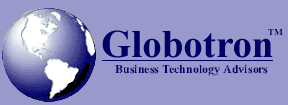Patents
Trademarks
Copyrights
|
|
back to
the Work Shop
Patent - Protecting
Your Idea
|
Patents offer inventors exclusive rights to their
creations, providing incentives for research and development.
They are also an important means of sharing know-how.
Patent documents describe new aspects of a technology
and can be read by anyone. Please visit http://www.uspto.gov/
for the latest information. What is a patent?
 A
document protecting the
rights of the inventor. A
document protecting the
rights of the inventor.
 A
repository of useful
technical information for
the public. A
repository of useful
technical information for
the public.
How does it
work?
 A patent
gives an inventor the right to exclude others from
making, using or selling his or her invention for
a maximum of 20 years. A patent
gives an inventor the right to exclude others from
making, using or selling his or her invention for
a maximum of 20 years.
 A profit
can be made from a patent by selling it, licensing
it or using it as an asset to negotiate funding. A profit
can be made from a patent by selling it, licensing
it or using it as an asset to negotiate funding.
 In exchange,
you are expected to provide a full description of
the invention so that everyone can benefit from this
advance in technology and knowledge. In exchange,
you are expected to provide a full description of
the invention so that everyone can benefit from this
advance in technology and knowledge.
 The Patent
Office will publish your application 18 months after
it is filed. The Patent
Office will publish your application 18 months after
it is filed.
 People
may then read about, but may
not make, use or sell your
patented invention without
your permission. People
may then read about, but may
not make, use or sell your
patented invention without
your permission.
What kinds of
inventions qualify?
Your invention must be new
(first in the world); be
useful (functional and
operative); show inventive
ingenuity and not be obvious
to someone skilled in that
area. It can be a product, a
composition, an apparatus, a
process or an improvement on
any of these.
How do inventors
obtain patents?
An application must be filed
with the Patent Office.
 This requires
broad knowledge of patent law and Patent Office practice. This requires
broad knowledge of patent law and Patent Office practice.
 A trained
patent agent can save you from the many headaches
that can arise from a poorly drafted patent that inadequately
protects your invention. A trained
patent agent can save you from the many headaches
that can arise from a poorly drafted patent that inadequately
protects your invention.
 Although
not mandatory, hiring an
agent is highly recommended;
a list ofregistered patent
agents is available from the
Patent Office. Although
not mandatory, hiring an
agent is highly recommended;
a list ofregistered patent
agents is available from the
Patent Office.
When should
inventors apply?
 Patents
are given to the first inventor to file an application.
It's wise to file as soon as possible after completing
an invention, in case someone else is on a similar
track; however, filing too soon, while still developing
an invention, may mean omitting essential features
from the application. Patents
are given to the first inventor to file an application.
It's wise to file as soon as possible after completing
an invention, in case someone else is on a similar
track; however, filing too soon, while still developing
an invention, may mean omitting essential features
from the application.
 Public
disclosure of an invention
before filing will make it
impossible to obtain a valid
patent. One should NOT
advertise, display or
publish information on an
invention too soon. Public
disclosure of an invention
before filing will make it
impossible to obtain a valid
patent. One should NOT
advertise, display or
publish information on an
invention too soon.
|
|



